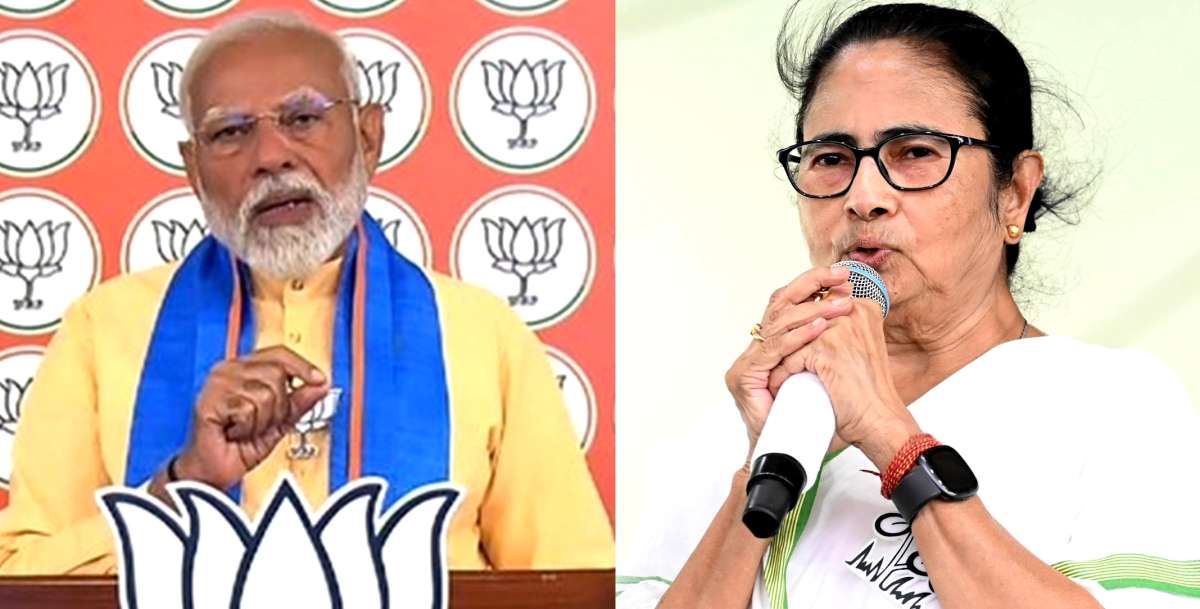The local issues took precedence over national matters during the campaigns for the 42 seats in West Bengal…reports Asian Lite News
With campaigning in the last and seventh phase of polls for nine Lok Sabha constituencies set to end within a few hours, a quick look back shows that local issues took precedence over national matters during the campaigns for the 42 seats in West Bengal.
Although the electorate is voting to elect the government at the Centre, the focus of all political parties in the fray is still on state-centric issues and how the results of the Lok Sabha polls in Bengal will determine the longevity of the ruling government in the state, which is officially scheduled to continue till 2026.
For instance, the BJP has focussed on issues like corruption cases against the state government and Trinamool Congress leaders, charges of sexual harassment of women at Sandeshkhali and misuse of funds released under centrally-sponsored projects.
Interestingly, this line of campaigning has not just been followed by prominent BJP leaders in the state like President Sukanta Majumdar or the Leader of Opposition Suvendu Adhikari, but even by the party’s national leadership.
The campaign speeches of Prime Minister Narendra Modi and Union Home Minister Amit Shah were full of references of state-specific issues.
Although both PM Modi and HM Shah touched upon national issues like India’s social and economic progress in the last 10 years, the time allotted for the same was too less compared to the references to state-specific issues.
For instance, in the campaigns for the last two phases, PM Modi focussed on Chief Minister Mamata Banerjee’s observations, accusing a section of the monks of Bharat Sevashram Sangha, Ramakrishna Math and Ramakrishna Mission and ISKCON of acting on behalf of the BJP.
On the other hand, Trinamool Congress leaders, especially Chief Minister Mamata Banerjee and the party’s General Secretary Abhishek Banerjee devoted most of the time in either defending the allegations made by the BJP or in explaining how the saffron party has deprived the state government of its legitimate dues under different centrally-sponsored schemes.
In addition, both leaders have dedicated much time on how the NRC, CAA and UCC will be against the interest of the Muslim community and how determined the Trinamool Congress is to block these in West Bengal.
Similarly, in the campaign meetings for the last two phases, CM Banerjee has devoted substantial time in explaining that her comments on the iconic religious institutions were being misinterpreted and she had never been against such entities.
However, one interesting similarity in the campaigns of the BJP and the Trinamool Congress has been their take on the CPI(M) and the Congress.
Both BJP and Trinamool Congress have accused the CPI(M) and the Congress of having a covert understanding with their political rival in the state.
This slur war was kicked off by CM Banerjee when she started describing CPI(M) and the West Bengal unit of the Congress as clandestine partners of the BJP in the state.
Soon the BJP leadership, including PM Modi launched a counter-campaign describing CPI(M) and Trinamool Congress as “enemies in Bengal but partners in Delhi.”
Surprisingly, even the Congress-Left Front alliance in West Bengal has focussed on state- specific issues while campaigning.
The alliance leaders have mainly talked about three issues, namely cases of corruption, clandestine understanding between BJP and Trinamool Congress and attempts to polarise voters in the state on religious lines by the BJP and Trinamool Congress.
An interesting factor in the Trinamool Congress’ campaign for these General Elections has been the constantly-shifting stand of CM Banerjee on the INDIA bloc.
After claiming that the INDIA bloc will end the tally with over 300 seats, with the BJP stopping at a little over 200, the CM said that she would give outside support to any probable Union government formed by the Opposition alliance.
Within days she shifted her stand and claimed that she is very much a part of the INDIA bloc and will take the lead role in any probable Opposition-led government at the Centre.
ALSO READ: 107 rallies in 75 days: Rahul Gandhi’s marathon campaigning

